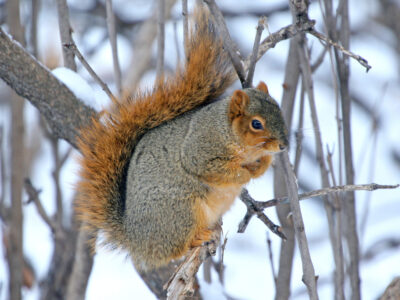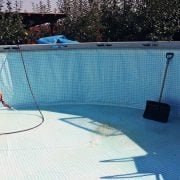Raccoon season is right around the corner. That means that females will be looking for a safe place to have their babies. Unfortunately, a lot of those females will break into attics breaking your standard fence gate, where they will cause all sorts of damage.
They may be cute, but raccoons wreak havoc on attic interiors. They poop all over the insulation and tear at electric cables, causing power outages and thousands of dollars in damages.
As a homeowner, one of the best things you can do to preserve your investment is to keep raccoons off your property. If you are struggling with a raccoon problem right now, contact Raccoon removal Richmond Hill or another professional near you.
Not sure where to start? Here are 6 things you can do to keep raccoons at bay.
Keep the yard free of food

Raccoons will go where the food is. So, keep the yard as free of food as you can. Pick up any fruit or acorns that might have fallen from your trees. If you grow vegetables, don’t let anything rot on the ground. Cover your vegetable garden with row covers or use garden beds with lids made of mesh that can be found on any good online gardening store.
It’s important to remember that raccoons are omnivores. They’ll eat koi fish, bird seed, pet food, and bird seed alike. If there are lots of raccoons in your area, consider putting the bird feeder away and cover your koi pond at night. Avoid leaving any food out at all.
Tie garbage bins with bungee cords
Raccoons love garbage. They’re also very smart and capable of opening locks. You should therefore invest in garbage bins that you can tie shut with bungee cords. Raccoons won’t be strong enough to lift the cords up and off the bins. If you can, store your garbage bins in a shed and take them out only for collection day.
Use natural repellents

Apple cider vinegar smells like predator urine. Spraying it around your property will signal that your home is unsafe to raccoons, and they will go elsewhere. Try soaking some rags in apple cider vinegar, then placing them in perforated bags or containers. Placing them around the deck or garden will help keep raccoons away, and the smell will last longer.
Another natural repellent consists of hot sauce or cayenne pepper. Simply sprinkle some cayenne pepper into your garden beds or dilute a hot sauce and make a homemade spray.
Use motion-activated deterrents
Place a motion-activated deterrent in the garden, or wherever raccoons cause you trouble. You can find all kinds of deterrents at home supply stores and hardware stores. Look for one that suits you best. Some spray water, while others flash lights or make an irritating, ultrasonic noise.
Cover roof vents

Raccoons are strong enough to rip vents right off the roof. They do this to reach the attic inside, as if it were a big, hollow tree. To prevent this, you can have your roof vents covered in mesh. The only problem with this is that you will have to access the roof safely.
Contact a wildlife removal company in your area and ask them to raccoon-proof your roof. A technician will inspect your property and use a thick galvanized steel mesh to cover the roof vents. Raccoons won’t be able to break the mesh off and squirrel won’t be able to wriggle their way through, either.
Keep the roof in good repair
Are your shingles starting to crack? Are there holes in your soffits? It might be time to call a roofing company. Raccoons will take advantages of weaknesses in the roof so they can access the attic inside. Take care of your roof and fix it when it needs maintenance. Empty the gutters every fall.














Comments